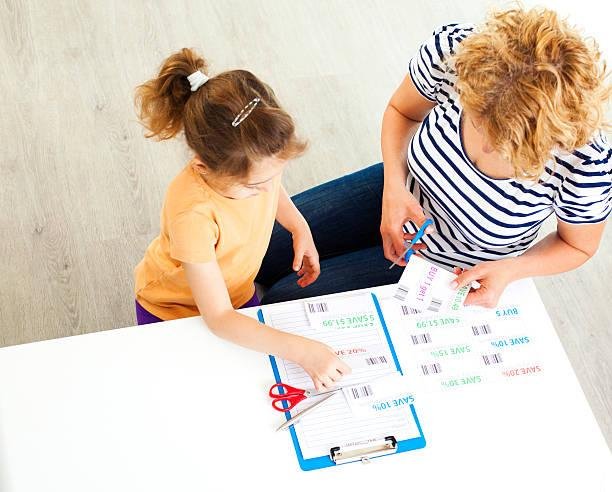When taking on the responsibility of babysitting, it is crucial to ensure clear communication between the babysitter and the parents. The well-being and safety of the child depend on how well-prepared and informed the babysitter is. To help babysitters navigate this important task, here are the top 10 babysitting questions to ask parents before starting the job. These questions are designed to cover everything from the child’s routine to emergency procedures, ensuring that the babysitting experience is smooth and safe for everyone involved.
1. What Is the Child’s Daily Routine?
Understanding a child’s daily routine is essential for maintaining consistency and helping the child feel comfortable while their parents are away. Ask about the child’s usual activities, including mealtimes, naptimes, playtimes, and bedtime rituals. Knowing whether the child has a favorite toy or book, or if there are specific activities they enjoy, can also help in keeping them entertained and content.
Why This Question Is Important
Children thrive on routine, and disruptions to their regular schedule can lead to distress or behavioral issues. By sticking to the child’s routine, the babysitter can provide a sense of normalcy, making the child feel secure and less likely to experience separation anxiety.
2. Are There Any Special Dietary Needs or Restrictions?
Food-related issues are critical to address. Ask the parents if the child has any food allergies, intolerances, or dietary restrictions. This question also covers preferences and dislikes, as well as any specific instructions regarding meals or snacks.
Why This Question Is Important
Food allergies can be life-threatening, so it’s vital to be aware of any restrictions to prevent accidental exposure. Additionally, knowing what the child likes and dislikes will make mealtimes easier and ensure that the child is well-nourished during your time together.
3. What Are the Emergency Contacts?
It is crucial to have a list of emergency contacts at hand. Ask the parents for their phone numbers, the contact information of a nearby relative or friend, and the child’s doctor. It’s also wise to know the location of the nearest hospital or urgent care facility.
Why This Question Is Important
In an emergency, every second counts. Having the necessary contact information readily available ensures that you can quickly get in touch with the right people and get the child the help they need without delay.
4. Is the Child on Any Medication?
If the child is taking any medication, ask the parents for detailed instructions on dosage, timing, and how the medication should be administered. It’s also important to know if there are any potential side effects to watch out for.
Why This Question Is Important
Properly administering medication is critical to the child’s health. Misunderstanding dosage instructions or failing to give medication at the right time can have serious consequences. Being well-informed helps prevent such risks.
5. Are There Any Behavioral Issues or Concerns?
Understanding a child’s behavior is key to managing potential challenges. Ask the parents if there are any behavioral issues you should be aware of, such as tantrums, anxiety, or difficulty with transitions. It’s also helpful to know what strategies the parents use to manage these behaviors.
Why This Question Is Important
Every child is unique, and some may have specific behavioral needs. By understanding these, you can approach situations with patience and the right techniques, ensuring a more harmonious babysitting experience.
6. What Are the House Rules?
House rules vary from family to family. Ask the parents about any rules they have regarding screen time, outdoor play, bedtime, and acceptable behavior. It’s also important to know if there are any rooms or items that are off-limits.
Why This Question Is Important
Respecting the family’s house rules helps maintain consistency for the child and prevents any misunderstandings or conflicts. It also shows the parents that you are committed to providing care that aligns with their values and expectations.
7. How Does the Child Usually Respond to New People?
Children react differently to strangers or new caregivers. Some may be shy and take time to warm up, while others may be more outgoing. Ask the parents how their child typically responds to new people and what you can do to make the transition smoother.
Why This Question Is Important
Knowing how the child might react to you can help you approach them in a way that builds trust and comfort. This understanding can prevent anxiety and help establish a positive relationship from the start.
8. What Should I Do in Case of an Emergency?
While having emergency contacts is essential, it’s also important to know the parents’ preferences for handling emergencies. Ask them what steps they would like you to take in various scenarios, such as a medical emergency, a fire, or a natural disaster.
Why This Question Is Important
Every parent has their own approach to emergencies, and following their preferences ensures that you are aligned with their expectations. This question also shows that you take your responsibility seriously and are prepared to handle unexpected situations.
9. Are There Any Specific Activities You’d Like Me to Focus On?
Some parents may have specific activities in mind for their child during the babysitting period. This could include educational games, physical activities, or creative projects. Ask if there are any activities they would like you to incorporate into your time with the child.
Why This Question Is Important
Focusing on activities that the parents value ensures that the child’s time is spent in a meaningful and enriching way. It also demonstrates your willingness to go above and beyond basic caregiving duties.
10. Is There Anything Else I Should Know?
This open-ended question gives the parents an opportunity to share any additional information that might not have been covered by the previous questions. This could include the child’s fears, favorite songs, or any upcoming events that might affect the babysitting session.
Why This Question Is Important
Parents might have unique concerns or preferences that they haven’t mentioned yet. By asking this question, you show that you are thorough and attentive to their needs, which can help build trust and ensure a successful babysitting experience.
Conclusion
Asking the right babysitting questions to ask parents is a crucial step in ensuring that you are fully prepared to take on the responsibility of caring for their child. These questions cover the most important aspects of child care, from understanding the child’s routine and dietary needs to being prepared for emergencies. By gathering this information, you can provide a safe, enjoyable, and consistent experience for the child, which will, in turn, give the parents peace of mind. The more you know, the better equipped you will be to handle any situation that arises, making you a more confident and competent babysitter.
click Here to visit the website






Your article helped me a lot, is there any more related content? Thanks!
Thanks for sharing. I read many of your blog posts, cool, your blog is very good.
Thank you for your sharing. I am worried that I lack creative ideas. It is your article that makes me full of hope. Thank you. But, I have a question, can you help me?
Подходящи за дома, разходка или пътуване – дамски комплекти с много възможности
комплекти дрехи за жени комплекти дрехи за жени .
Алкоголь онлайн с доставкой — решение для занятых и практичных
доставка алкоголя на дом москва доставка алкоголя 24 часа москва .
Услуги клининга в Москве приобретают все большее значение. Благодаря высоким темпам жизни жители мегаполиса ищут способы упростить быт.
Услуги клининговых компаний включают в себя множество различных задач. Это может быть как ежедневная уборка квартир, так и глубокая очистка помещений.
Важно учитывать репутацию клининговой компании и ее опыт . Необходимо обращать внимание на стандарты и профессионализм уборщиков.
В заключение, клининг в Москве – это удобное решение для занятых людей. Клиенты могут легко найти компанию, предоставляющую услуги клининга, для поддержания чистоты.
уборка в москве клининговая компания http://uborkaklining1.ru/ .